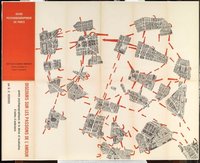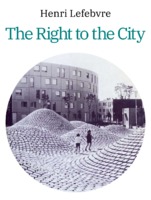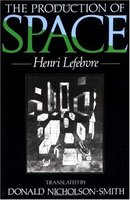Psychogeography
About psychogeography
Psychogeography is a term coined by the Marxist theorist Guy Debord around 1955. Psychogeography is grounded in a Marxist analysis of space and the production of aesthetic experiences in urban and public environments. The term refers to a wide range of thought, ultimately exploring the ways that individuals experience, react, and emotionally reflect the built environments that they come in contact with. Its emphasis is on the playfulness and non “productive” possibilities of space, namely, experiencing architecture and urban design without an objective. While largely a term relevant to cultural and political theory, the term is inherently related to aesthetic theory as well. In the art world, the term is used to explore how depictions of space (nature, human-made, interior or exterior) reflect emotional experiences, challenge our understandings of urban development and design, and encourage playful and exploratory approach to one's surroundings.
About the Situationists
The Situationist International was an avant-garde group located across Europe between 1957 until its dissolution in 1972. Combining the traditions of the Letterist International and the Internation Movement for an Imaginist Bauhaus, the Situationist International focused on art, political, and social theory and are probably best known for their involvement and influence on the May 1968 worker and student revolts in France. As anti-state communists, the situationists produced books, essays, and artworks that they saw as a continuation of Marx's critique of capitalism. The SI sought to expand on Marx's critique of production under capitalism by furthering it into the realm of daily life, emotional experience, and urban design. A major tenant of situationist thought was that people's lives have become unbearably boring and mechanical as a result of alienation and bureaucracy that it is the role of artists and theorists to inspire "situations" that move people to navigate their lives in new, radical, and thoughtful ways.
“So far philosophers and artists have only interpreted situations; the point now is to transform them.” A direct reference to Marx's Thesis on Feuerbach, "The philosophers have only interpreted the world, in various ways. The point, however, is to change it."
About this project
For this project I was interested in two things. Ultimately I was interested in works created by situationists, or that the situationists explicitly referenced in their writings about psychogeography. In my research I found that there are not many works explicitly referenced in writings by various situationists, and many works of art that were created by artists who considered themsevles situationists didn't necessarily explore space in their works. However, as someone trained in art history, many works of art came to mind that evoke psychogeographic principles. I then became interested in works of art that deal with depicting space or the experience of space in their work, and then sought to bring all of these works together using the lens of psychogeography.





